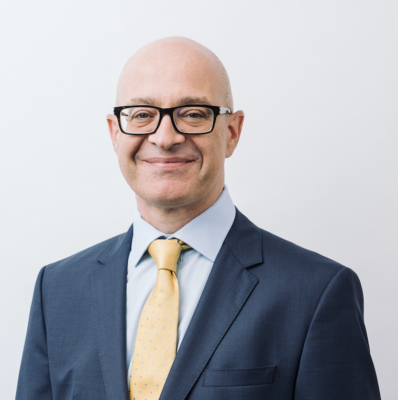By Gavin Sharpe
As a psychotherapist, perhaps it is unsurprising that I am deeply concerned about the impact the coronavirus crisis is having on our mental health. I am troubled about the way we are framing the debate and our binary approach to wellbeing. It seems we need to prioritize either our physical wellbeing or our emotional wellbeing. It’s like a bad joke. You are on a desert island and can either be emotionally healthy or physically healthy. Which would you choose?
Physical and Emotional Health
We seem to be bombarded daily about the need to maintain our physical health. Stay at home. Wash your hands. Practice safe social distancing. (Do you remember the good old days when all we spoke about was practicing safe sex?) This is the magic formula that will apparently unlock our confinement and lead us to nirvana.
No doubt, that’s partly true. However, if we emerge from the crisis with a plethora of mental health problems, it will be an own goal. The chances of us getting sick will increase. The chances of us carrying a virus could be higher. The chances of us passing that virus to friends and family will increase. You get the picture.
Our emotional health and our physical wellbeing, specifically our immune system, are linked. If we do not start to educate ourselves about this link, I believe we will win the battle against the coronavirus but we might emerge less healthy than when we entered the pandemic crisis.
I am rarely surprised when clients share in therapy that the catalyst for their coming to see me was their falling sick. They often report high blood pressure, stomach ulcers, insomnia, back pains, or general fatigue. There is growing evidence to support the fact that stress impacts our immune system and makes us more susceptible to colds and the flu as well as other physical illnesses. What might be the impact on the world given the collective stress we are experiencing?
Childhood Trauma
In the 1990s, a seminal study was carried out in California known as the Adverse Childhood Experience Study, or ACES for short. This study proved that children who experience trauma (specifically physical and emotional abuse, neglect, and violence) were more susceptible to poor outcomes later in life, including dramatically increased risk of heart disease, diabetes, obesity, depression, substance abuse, smoking, poor academic achievement, time out of work, and early death.
In other words, toxic stress triggers biological reactions that affect our immune system.
The ACES research also found that adverse childhood experiences had a dramatic impact on a child’s developing brain as well as the immune system, metabolic regulatory systems, and cardiovascular system. Stress changes the brain and weakens our immune system (early life stressors have been linked to reduced volume in two major areas of the brain: the hippocampus and medial prefrontal cortex).
I hope we can widen the COVID-19 debate to take into account the mind-body connection and that we stand the best chance of healing ourselves by adopting a holistic approach to wellbeing. It’s not enough to have long walks twice a day and practice perfect social distancing techniques if I come home and spend my day disconnected from my emotions or alternatively overwhelmed with anxiety. I need to manage my emotions during the crisis in order to increase my chances of staying physically healthy.
Cortisol
Let’s talk about cortisol. Cortisol is a stress hormone that alerts the body to respond to stress. When stress impacts our brain, it has a knock-on effect on our cortisol production. Cortisol communicates with the immune system to regulate inflammation. It does so through increased heart rate, the flow of blood through our bodies and the release of glucose. If I am exposed to excessive stress, my body might make too much cortisol or deplete it. The point is that under stress, my inflammatory responses may get out of control. Put simply, our brains and our immune systems work together, not apart.
It is true that some stress is healthy. That explains why we often work well under some pressure. Stress can improve our immune function in the short-term. However, chronic stress such as stress experienced in a pandemic can suppress it, making us more susceptible to infections.
Our thoughts and feelings impact our health. I am in full agreement that we need to do what the experts are advising us to do to stay physically healthy and virus free. But it might not be enough to inoculate us against viruses and infections. Our emotions affect our physical wellbeing and we need to keep a watchful eye on both. We need to calm our minds and bodies. We need to get in touch with our emotions, connect to our anxieties, get the right amount of sleep, consider our vitamin intake, work on our negative thinking patterns, and practice mindfulness. In summary, the phrase I always use is that we need to give ourselves permission to feel our emotions.
Finally
So, if you ever do get stranded on that desert island, I am sure that washing your hands will keep you free of the coronavirus should anyone come to join you. However, you will be much better company and able to manage the crisis better if you keep yourself emotionally healthy. Crucially, you will have a much stronger immune system.
*****
This article originally appeared on the Riviera Wellbeing website at this link. It is reprinted here with the permission of the author.
 Gavin Sharpe hosts our Thursday (10 a.m. Pacific) Sex, Love, and Addiction drop-in discussion group for men. He is an accredited psychotherapist with the British Association for Counselling & Psychotherapy (MBACP). He is also a Certified Sex Addiction Therapist (CSAT). Gavin works with individuals and couples (heterosexual and same-sex) affected by issues relating to sex and intimacy disorders, as well as those experiencing broader mental health problems. As an integratively trained psychotherapist, Gavin works according to the needs of each client, drawing on a range of therapeutic techniques. He believes that within all of us lies the resources to live the life that we were born capable of living. Gavin also works on intensive programs and groups structured to support sex, porn, and love addiction treatment. Gavin is based in Monaco and works with the English-speaking communities on the French Riviera as well as with other ex-pat communities in Southern Europe. Previously, Gavin enjoyed a corporate career in the City of London working as a lawyer and then founded his own international recruitment business.
Gavin Sharpe hosts our Thursday (10 a.m. Pacific) Sex, Love, and Addiction drop-in discussion group for men. He is an accredited psychotherapist with the British Association for Counselling & Psychotherapy (MBACP). He is also a Certified Sex Addiction Therapist (CSAT). Gavin works with individuals and couples (heterosexual and same-sex) affected by issues relating to sex and intimacy disorders, as well as those experiencing broader mental health problems. As an integratively trained psychotherapist, Gavin works according to the needs of each client, drawing on a range of therapeutic techniques. He believes that within all of us lies the resources to live the life that we were born capable of living. Gavin also works on intensive programs and groups structured to support sex, porn, and love addiction treatment. Gavin is based in Monaco and works with the English-speaking communities on the French Riviera as well as with other ex-pat communities in Southern Europe. Previously, Gavin enjoyed a corporate career in the City of London working as a lawyer and then founded his own international recruitment business.
